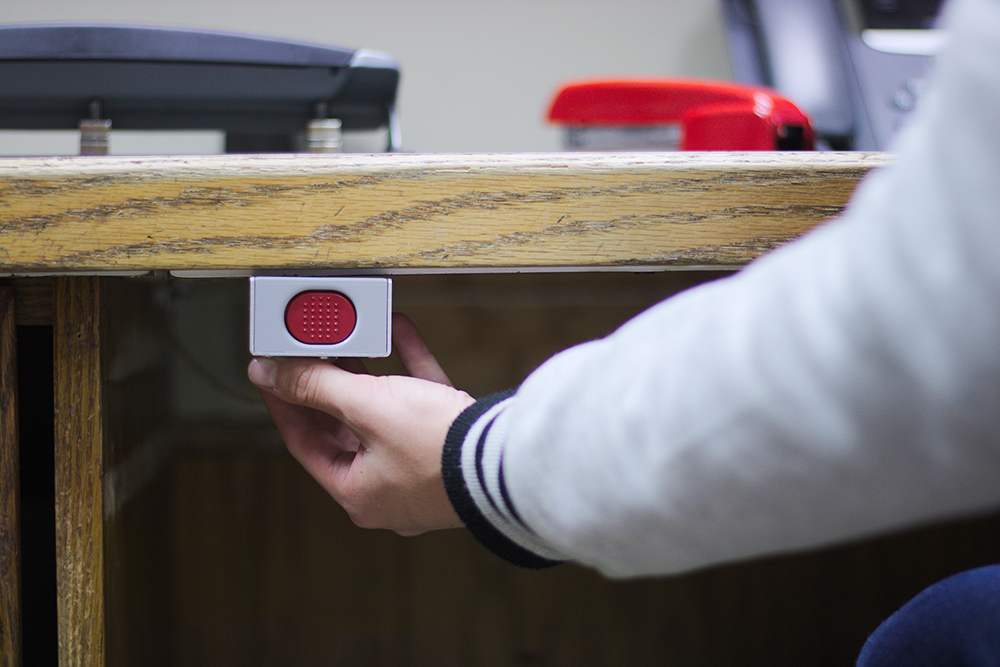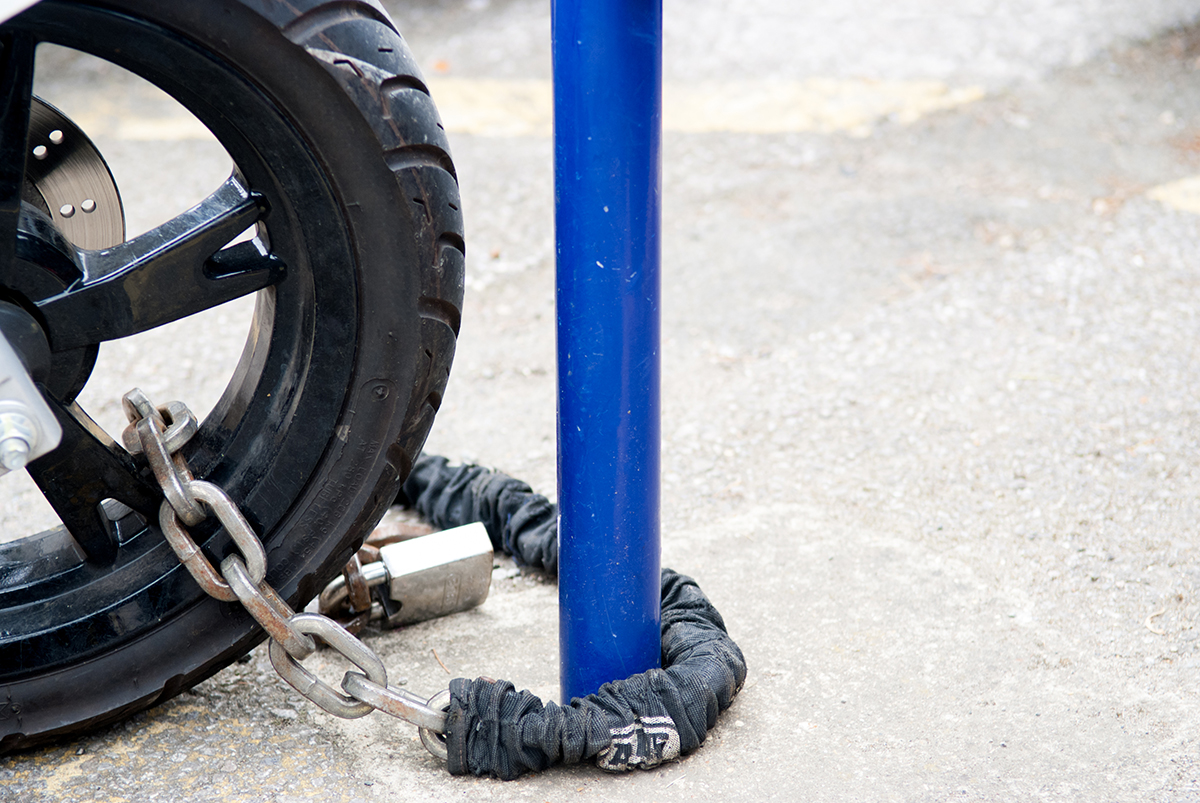You may not realize it, but you’ve probably seen emergency buttons in action in more than one situation.
We’ve all seen the Life Alert commercials where an older adult falls, so they have to use their emergency button to alert the authorities.
And if you’ve watched your fair share of movies, you’ve likely seen a bank robbery scene where a terrified teller presses the silent panic button underneath their desk.
But does the fact that these devices serve the same purpose mean they’re the same?
As we’ll be exploring today, panic buttons, distress buttons, and emergency buttons are all more or less the same. But there are a few distinctions that set these life-saving technologies apart.
Portable Vs. Fixed Emergency Buttons
The type of emergency or panic button you’re most likely familiar with is the portable pendant necklace with the big button in the middle.
The wireless pendant comes with a communications box that receives the distress signal and alerts local emergency services whenever the button is pressed.
Companies like Life Alert, Bay Alarm Medical, Medical Guardian, and others offer these devices to seniors at risk of falls, medical emergencies, and other accidents.
If they slip in the shower, fall on the stairs, or experience a cardiovascular emergency, all they have to do is reach up to their necklace, tap the button, and help will be on its way.
These devices are easy to use and allow elderly people to live safely on their own and retain their independence.
Fixed Panic Buttons
Unlike these portable necklaces, the panic buttons you find in banks are built to remain fixed in one location.
Typically, they’ll be placed somewhere the tellers can easily reach them in the event of a robbery or other emergency.
The most common places are on the underside of the teller’s desk or somewhere beneath their feet, so they can quickly and quietly press the button without alerting the intruder.
Silent Vs. Loud Panic Buttons
As we’ve seen already, another notable difference between personal safety alarms is whether or not they make a sound when activated.
In a bank setting, silent alarms are typically the panic button of choice. This is because it’s impossible to predict how a thief will react when an employee triggers a loud alarm.
Rather than risk a violent outburst in an already dangerous situation, most financial institutions opt for the silent models.
But for people at home, loud panic buttons can be the perfect crime deterrent. No thief will want to stick around with an alarm blaring for several minutes.
Also, if you live close to or with an elderly loved one, a loud alarm will alert you when they have an emergency. That way, you can give them whatever help they need while responders make their way to you.
When looking for the right panic button for your loved one, it’s important to have a conversation with them about which type would make them feel the safest.
Finding the Right Emergency Button for Your Loved One
For at-risk seniors or anyone with a life-threatening medical condition, portable emergency buttons will most likely be your best bet.
But for many people who like to stay active in their day-to-day lives, a bulky pendant necklace can be a hassle to carry around all the time.
Plus, if they need protection when they’re out and about, their panic button will need to double as a GPS.
And while many medical alert companies offer GPS services, very few have budget-friendly options…
But that’s where the Rescu app comes in.
Top-Notch Home & GPS Protection for Just $10 a Month
The Rescu app acts as a personal panic button, whether your loved one is at home or on the go.
And since it’s an app, the only equipment they’ll need is their smartphone. That means no pendants or communications boxes to worry about.
Account setup is easy and intuitive, and the app stores their address, relevant medical information, and emergency contacts in case they need to trigger an alert.
Here’s a quick step-by-step breakdown of how Rescu works in the event of a crisis:
- Your loved one has an emergency, opens the app, and selects either “Home” or “Current Location” (GPS).
- Based on the nature of their emergency, they’ll tap either “Fire,” “Police,” or “Medical.”
- Once they’ve made their selection, they’ll tap “Send Alert,” and emergency responders will be sent directly to their location — no questions asked, no phone call required (and no loud alarm).
- When your loved one sends an alert, the app will automatically send their medical information to responders and notify all emergency contacts that they’ve requested help.
Rescu’s UL-Certified private dispatch center is held to the same security and reliability standards as giants like Vivint and ADT, but we only charge a fraction of the price for home and GPS dispatch services.
That’s because we believe everyone should have access to affordable and dependable peace of mind wherever they go.
Rescu turns you or a loved one’s phone into a personal GPS panic button. And at $10 a month, this life-saving app costs less than a standard Netflix subscription.
Click or tap below to get started today!





